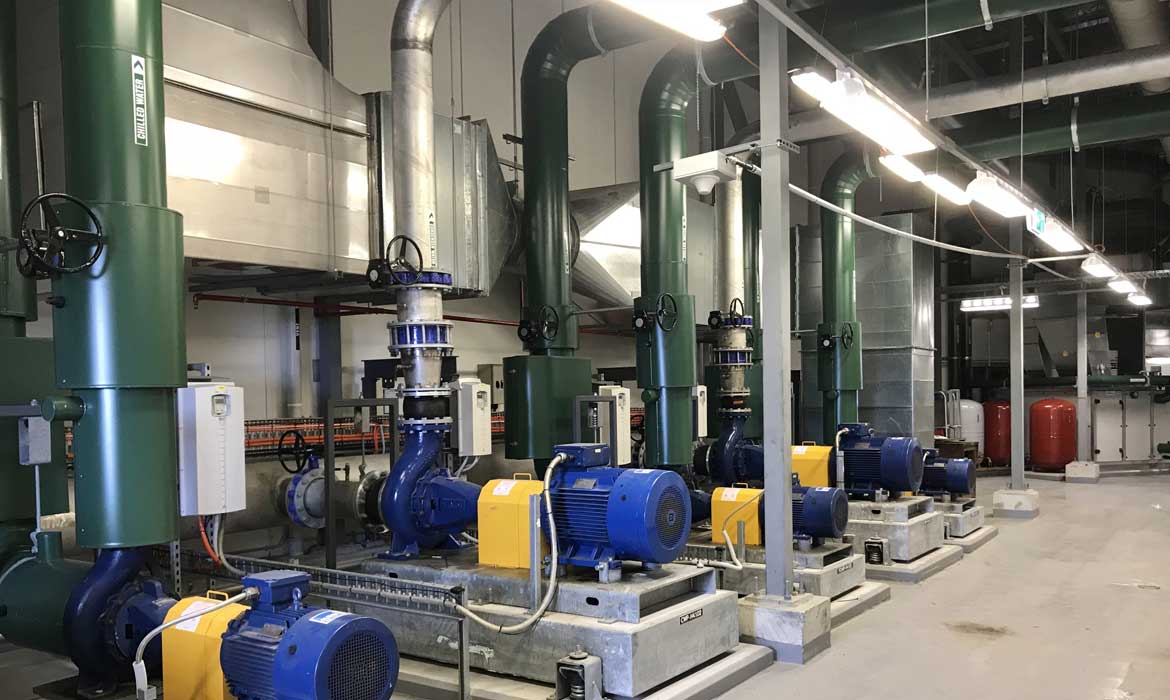Chilled Water Treatment

Closed-loop/chilled water treatment

Hot water, chilled water, tempered water, process water, and glycol filled closed loops are often ignored when considering a water treatment program, which can be a costly mistake. Closed loops that are not properly treated can cause significant corrosion damage. Closed loops that are leaking can waste water and energy while causing corrosion. These systems must be checked regularly to confirm the proper treatment level and system integrity. Chem-Aqua has the product line and technical expertise to recommend the appropriate treatment for the metallurgy in any closed-loop system and monitor it after treatment is applied. Chilled Water Systems are an effective way of heating or cooling in buildings, hotels, software parks, etc as well as industrial processes like cooling of gas engines, compressors, air washers, etc.
It requires treatment to prevent corrosion of the metals within the system. The most common metals are steel, copper, and copper alloys. If the copper is allowed to corrode, the copper ions in the water quickly plate out on the steel in the system, causing galvanic corrosion of the steel. Chilled water closed loop inhibitors must provide good protection for steel, copper, and copper alloys that are in the system.
Well-controlled cooling systems are crucial in maintaining a good indoor climate and low operation costs. Variable Primary Flow (VPF) systems are world champions in achieving this. But to avoid chiller freezing and tripping, a minimum flow through the chiller must be maintained and the system must have quick unloading capabilities. This can be achieved with a precise control system, variable capacity compressors, pumps and fans, and a well-controlled bypass line.
Frequently Asked Questions For Chilled Water Treatment
What are the types of closed-loop cooling systems in water treatment plant enclosures?
Air conditioners and air to air heat exchangers are the two basic types of closed-loop cooling systems.
How to detect leaks in a closed system?
Installing a totalizing water meter in the make-up line will provide early detection. In addition, regular testing of the water can also help detect leaks.
How does Legionella affect cooling towers?
Cooling towers are of particular concern because they contain warm water that is open to the atmosphere. This acts as a perfect breeding ground for Legionella bacteria if they are not properly cleaned, disinfected and maintained.
